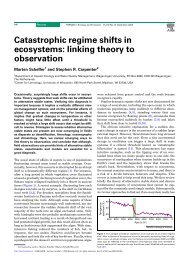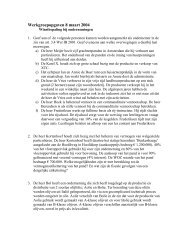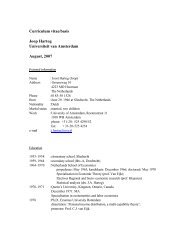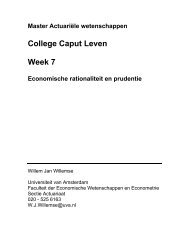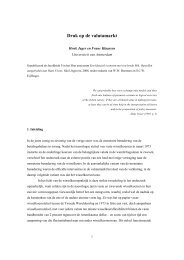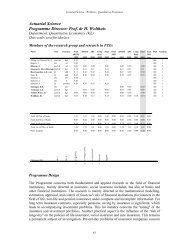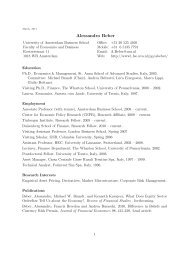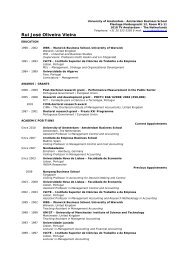How Do Corporate Venture Capitalists Create Value for ...
How Do Corporate Venture Capitalists Create Value for ...
How Do Corporate Venture Capitalists Create Value for ...
Create successful ePaper yourself
Turn your PDF publications into a flip-book with our unique Google optimized e-Paper software.
firms’ industry dummies to account <strong>for</strong> trends in the venture capital industry (e.g., aggregate funding<br />
availability and hot or cold industry preferences).<br />
Consistent with our univariate analysis results, we find that corporate venture capitalists tend to<br />
invest significantly more money than IVCs in a given financing round. This effect is most pronounced <strong>for</strong><br />
the sub-set of entrepreneurial firms that are in the same industry as the CVC’s corporate parent. This<br />
evidence suggest that CVCs create value <strong>for</strong> the entrepreneurial firm by providing them with large capital<br />
inflows and showing a significant bias toward financing companies that they can potentially screen and<br />
monitor better (those in an industry related to their corporate parent). In addition, we observe that venture<br />
capitalists, both CVCs and IVCs, tend to invest more in younger, less developed firms, in the later rounds<br />
of their financing. The positive coefficients of the various IVCs reputation proxies is likely to reflect the<br />
fact that more reputable IVCs tend to have larger portfolios (in terms of dollar amount) and hence are<br />
better positioned to invest in firms that require larger capital injections.<br />
Panel B of Table 3 presents the results of our regression analysis of the firm equity share transferred<br />
to the venture capitalists in return <strong>for</strong> each $1 million investment. The dependant variable is the post-<br />
round firm value divided by the dollar amount invested by all venture capitalists this round. Thus the unit<br />
of observation is firm-round. The set of the independent variables is similar to that of Panel A. The main<br />
variable of interest is the CVC backing dummy that is equal to one if at least one CVC participated in this<br />
financing round. Since the post-round firm valuation is only available at the firm-round level and there<br />
are a number of rounds with multiple CVCs investing in a firm we cannot disentangle how corporate<br />
venture capitalists value firm in a related industry.<br />
We find that corporate venture capitalists value entrepreneurial firms backed by them significantly<br />
higher than IVCs. Per million dollar invested they receive on average 4.1% less of the entrepreneurial<br />
firm’s equity than IVCs. Thus, the effect is not only statistically but also economically significant. These<br />
result might reflect the lower bargaining power that CVCs may have with respect to portfolio firms<br />
compared to that of VCs. It is also consistent with CVCs having non-financial motivations as well as<br />
direct financial motivations in investing in portfolio firms.<br />
17




